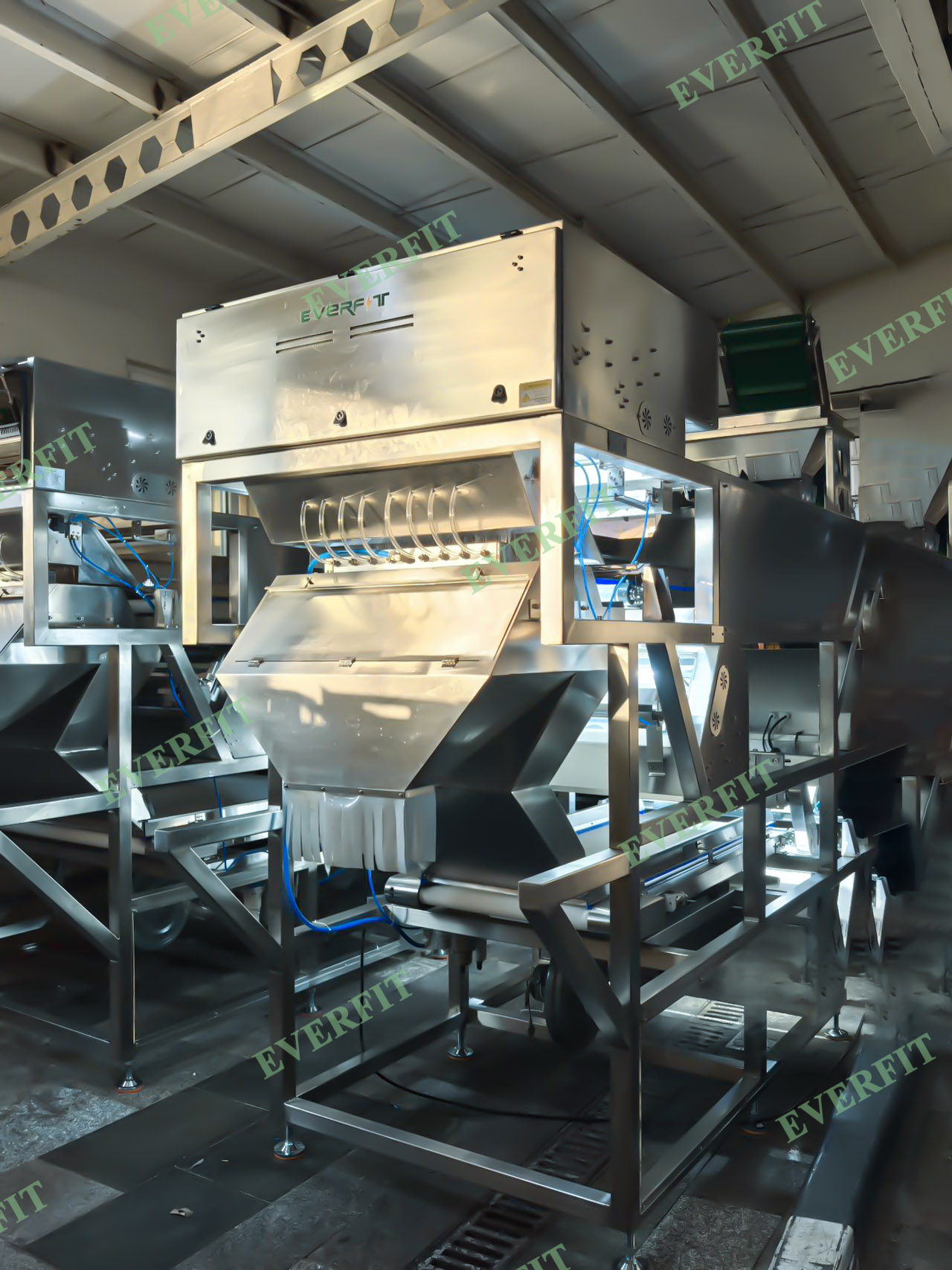The Transformative Advantages of AI Sorting Machines for the African Coffee Industry
In the global coffee landscape, Africa, blessed with unique natural conditions, stands as a crucial producer of high - quality coffee beans. From the rich fruity aroma wafting from the Ethiopian highlands, to the bright acidity nurtured in the Kenyan mountains, and the full - bodied texture imparted by the volcanic soils of Tanzania, African coffee has won over countless coffee enthusiasts with its diverse flavors. However, for a long time, the African coffee industry has faced formidable challenges in the coffee bean screening process. Traditional sorting methods have severely restricted the further development of the industry. The advent of AI sorting machines, like a ray of dawn, has brought about comprehensive positive changes to the African coffee industry.
I. Quality Enhancement: Meticulous Screening Standards
The quality of coffee is the core determinant of its market value. In the past, manual screening of coffee beans could, to some extent, identify obviously defective beans. However, it was often difficult to detect hidden issues such as internal insect damage and mild mold. These substandard beans that mixed in with high - quality ones would release unpleasant odors during the roasting and brewing processes, disrupting the flavor balance of the entire batch of coffee and degrading its quality.
AI sorting machines leverage advanced Multispectral Imaging (MSI) and machine - learning technologies to conduct 360 - degree all - round scanning and analysis of coffee beans. High - speed CameraLink cameras rapidly capture images of coffee beans moving on the conveyor belt. Subsequently, an intelligent system equipped with sophisticated algorithms conducts deep learning on these images. Trained with a vast amount of data, this system can accurately recognize subtle features of coffee beans, including color, shape, size, texture, and even internal structure. For example, by analyzing the spectral characteristics of coffee beans, it can precisely determine whether they are infested with insects, even if the insects have left only tiny traces inside the beans. Based on changes in color and texture, it can accurately detect slightly moldy beans. In this way, AI sorting machines can precisely remove defective coffee beans, ensuring that every African coffee bean entering the market meets high - quality standards. This significantly improves the overall quality and flavor stability of coffee, making African coffee more competitive in the international market.
II. Efficiency Surge: Time - Sensitive Production Speedup
Traditional manual sorting of coffee beans is slow and highly susceptible to worker fatigue. During the busy harvest season, a large number of coffee beans pile up waiting to be screened. The low efficiency of manual sorting seriously affects the production schedule. Although mechanical sorting has improved in terms of speed, its limited sorting criteria make it difficult to meet the demand for high - quality screening of coffee beans.
AI sorting machines, however, demonstrate unparalleled efficiency. They can process thousands of coffee beans per second, improving efficiency several times or even dozens of times compared to manual sorting. In large - scale coffee processing plants, an AI sorting machine can complete the screening work that would have taken manual laborers weeks to finish in just one day. This greatly shortens the cycle from coffee bean harvesting to processing. Not only does it enable coffee producers to bring products to market more quickly and seize sales opportunities, but it also significantly enhances the overall production capacity of the plant, meeting the growing market demand. For instance, after an Ethiopian coffee processing plant introduced AI sorting machines, its daily coffee bean processing capacity increased from 5 tons to 20 tons, achieving a qualitative leap in production efficiency.
III. Cost Optimization: A Wise Investment for Long - Term Benefits
On the surface, the upfront procurement cost of AI sorting machines is relatively high, deterring some coffee producers. However, from the perspective of long - term operating costs, AI sorting machines bring remarkable cost - optimization effects.
On one hand, they significantly reduce labor costs. The African coffee industry relies heavily on a large number of manual workers for coffee bean sorting, and labor expenses account for a considerable proportion of production costs. After introducing AI sorting machines, the sorting work that originally required dozens or even hundreds of workers can now be completed by only a few technicians operating the equipment. Take a medium - sized coffee processing plant in Kenya as an example. Before using AI sorting machines, it cost approximately \(500,000 per year to hire manual laborers for coffee bean sorting. After the introduction of the machines, labor costs dropped to less than \)100,000 per year, saving a substantial amount of money annually.
On the other hand, AI sorting machines, through precise screening, reduce the waste of high - quality coffee beans caused by the mixing of substandard ones. In the past, due to the inaccuracy of manual and traditional mechanical sorting, a large number of high - quality coffee beans were discarded in subsequent processing stages due to the influence of substandard beans. AI sorting machines accurately remove defective beans, improving the utilization rate of coffee beans and reducing raw material loss costs. Overall, AI sorting machines save a great deal of costs for coffee producers during long - term operation, enhancing economic efficiency.
IV. Environmental Contribution: Green Support for Sustainable Development
While pursuing economic benefits, the African coffee industry is increasingly focusing on sustainable development and environmental protection. AI sorting machines play a positive role in this regard as well.
Thanks to the precise screening of AI sorting machines, the waste of coffee beans is reduced. This means that in the coffee bean cultivation stage, there is no need to expand the cultivation area unnecessarily, avoiding damage to natural ecosystems such as forests. At the same time, traditional coffee screening methods, if inaccurate, would lead to a large number of coffee beans being discarded. The disposal of these discarded coffee beans would cause certain environmental pollution. AI sorting machines reduce the generation of discarded coffee beans, minimizing the environmental pressure from waste at the source. In addition, the efficient working mode of AI sorting machines reduces energy consumption per unit of output, further promoting the green development of the coffee industry and laying a solid foundation for the sustainable future of the African coffee industry.
AI sorting machines are reshaping the landscape of the African coffee industry with their outstanding quality - enhancing capabilities, high production efficiency, remarkable cost - optimization effects, and positive environmental contributions. They not only help African coffee gain a firm foothold in the international market but also propel the African coffee industry to move forward vigorously towards high - quality, high - efficiency, and sustainable development. They have become an indispensable key force in the development of the African coffee industry.


 Mobile/Whatsapp 0086-18695800088
Mobile/Whatsapp 0086-18695800088 
